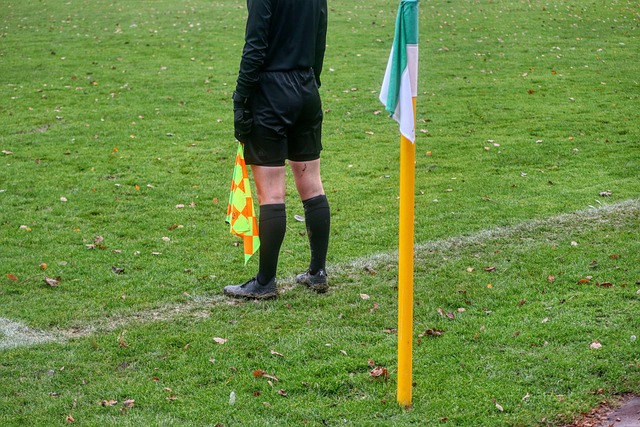Fostering healthy relationships through boundary setting, assertiveness training, and holistic wellness practices is crucial for early sobriety and co-occurring disorder treatment. Overcoming peer pressure involves learning effective communication skills, using "I" statements, exploring triggers, and developing coping mechanisms. Online support groups and coaching empower individuals to interact confidently, build a supportive network, and make choices aligned with their recovery goals, leading to a more stable and fulfilling path forward.
Healthy relationships are a cornerstone of personal growth, especially during recovery. Understanding and cultivating boundaries, assertiveness, and communication skills can significantly impact one’s path to healing. In this article, we explore these dynamics, offering insights on how to set boundaries as a defense against peer pressure, while also providing effective communication strategies for both personal and professional environments. Discover the power of these tools in enhancing your recovery journey and fostering healthy connections.
- Understanding Healthy Relationships and Their Impact on Recovery
- Setting Boundaries: A Powerful Tool Against Peer Pressure
- Communication Strategies for Assertiveness in All Environments
Understanding Healthy Relationships and Their Impact on Recovery

In the journey towards recovery, fostering healthy relationships becomes a powerful tool for sustained sobriety. Understanding what constitutes a healthy relationship is essential, especially in navigating early sobriety and co-occurring disorder treatment options. Healthy relationships are characterized by mutual respect, open communication, clear boundaries, and reciprocity, providing a supportive network crucial for emotional well-being. When individuals learn to set boundaries, they gain the strength to resist peer pressure and make choices that align with their recovery goals.
Peer pressure is a common challenge faced during recovery, but with the right tools, it can be overcome. Healthy relationships coaching in early sobriety offers strategies to enhance assertiveness and communication skills, empowering individuals to navigate interpersonal interactions confidently. By joining recovery support groups online, one can find like-minded peers who understand the struggles of addiction and can provide valuable peer support. These connections foster a sense of belonging and accountability, reinforcing positive behaviors and promoting long-term recovery.
Setting Boundaries: A Powerful Tool Against Peer Pressure

Setting boundaries is a crucial skill to learn while in recovery from addiction or any other challenging situation. Peer pressure can be a significant obstacle on the path to healing, often tempting individuals to revert to old patterns or engage in risky behaviors. However, with the right tools and mindset, one can become more resilient and equipped to say ‘no’ without guilt or fear of rejection. Healthy relationships coaching plays a vital role here by teaching individuals how to establish personal boundaries that protect their well-being and promote positive choices.
This process involves recognizing one’s needs, values, and limits and then effectively communicating them to others. Coaches guide clients through exercises to identify the signs of peer pressure, helping them understand when they are at risk. Using techniques like Cognitive-Behavioral Therapy (CBT), which reframing negative thoughts and behaviors, individuals can challenge their self-doubt and learn assertiveness. Holistic Wellness Programs, integrating practices such as yoga, meditation, and nutrition, provide additional tools for stress management and emotional resilience. These methods empower people to make choices aligned with their recovery goals, even in high-pressure situations, ensuring a more stable and fulfilling path forward.
Communication Strategies for Assertiveness in All Environments

Effective communication is a cornerstone of healthy relationships, especially during early sobriety when navigating new boundaries can be challenging. In recovery, it’s crucial to develop assertive communication strategies to resist peer pressure and maintain personal integrity. One way to achieve this is by practicing clear and direct communication, where individuals express their needs, feelings, and boundaries without apology or aggression. This involves using “I” statements to own one’s emotions and experiences, such as saying, “I feel uncomfortable when…” instead of blaming others.
Healthy relationships coaching can provide valuable tools for enhancing communication skills. It encourages individuals to explore their triggers and develop coping mechanisms, including strategies to navigate social situations and resist peer pressure. By learning to assert themselves in all environments—from personal interactions to professional settings—recovering individuals can build resilience and maintain their path to sobriety while fostering meaningful connections. Additionally, incorporating practices like yoga and meditation classes for stress reduction can further support this process by promoting emotional balance and mindfulness, making it easier to communicate effectively and make thoughtful decisions.
Healthy relationships are a cornerstone of personal growth and recovery. By focusing on setting clear boundaries, developing assertiveness, and enhancing communication skills, individuals can not only navigate their personal and professional lives more effectively but also overcome peer pressure while in recovery. These strategies empower people to make choices that align with their goals and well-being, fostering a supportive environment conducive to lasting positive change.






